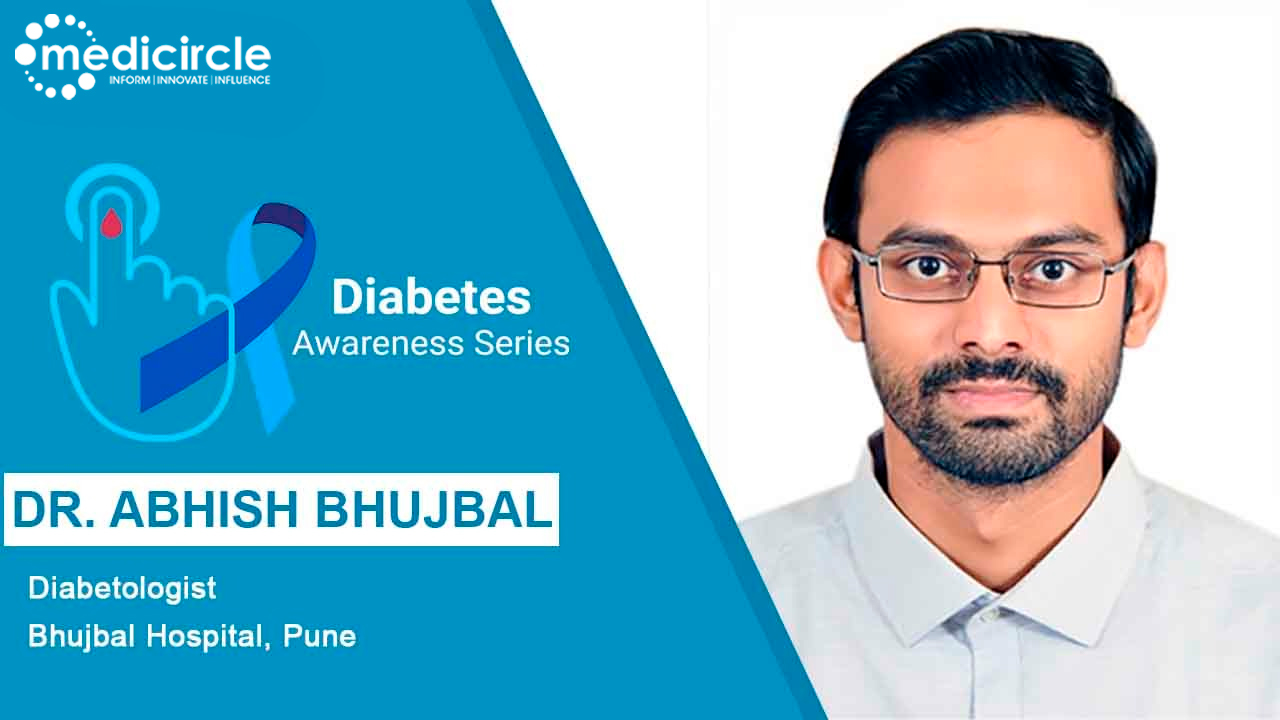We at Medicircle are constantly working on bringing to our audience all the trending health-related topics. It is our primary objective to Bring to your attention news and views you need to be aware of to lead a healthy disease-free life. To help us in this regard we’d be joined by eminent and expert top doctors from across the country. Today in Doctor’s Speak we are going to talk about the problem of Diabetes and ways to help you deal with it.
Dr. Abhish Bhujbal is one of the Best Diabetologists in Phursungi, Pune. He has completed MBBS and MD. Currently, He is practicing in Bhujbal Hospital, Pune.
Normal Average blood sugar
Dr. Abhish Bhujbal says, “Diabetes has been a very common disease in India. India is the capital of diabetes. The maximum number of patients with diabetes are found in china. There has been increasing in the number of cases of diabetes. Diabetes is basically affected due to Beta-cell dysfunction. This causes an uncontrollable increase in sugar levels. The average blood sugar level for diabetes should be 80 - 126 mg/dl for fasting blood sugar levels and after food for 140-180 mg/dl. Anything about fasting 126 mg /dl is diabetic and above 180mg/dl Postprandial is diabetic. Also, the HbA1c levels should be recorded and measured every 3 months and should be less than 6 %. If it exceeds more than 6.5 %, it is considered diabetes. ”
Diet for diabetic patient
Dr. Abhish Bhujbal informs, “A diabetic patient should eat and consume the following-
- A high fiber diet to initiate glucose metabolism
- Prevent bakery products
- Consume a good amount of protein according to the bodyweight
- Fruits with a low glycemic index like apple and pomegranate
- Fruits with a high glycemic index like apple and mango
- Exercise daily for 30 - 40 mins daily
- Aerobic exercises and swimming.”
Resources are available to help control diabetes
Dr. Abhish Bhujbal states, “The resources to control diabetes are -
- Oral anti-diabetic drugs
- Insulin injections
These medicines can be taken as per the physician’s prescription.”
Monitoring of Diabetes
Dr. Abhish Bhujbal says,” Diabetes is known as a silent killer. It can cause microlevel and macrolevel complications. It can affect your -
- Eyes
- Heart
- Brain
- Kidneys
- Peripheral nerves
Blood sugar levels should be monitored at least once a month. Fasting and after food blood sugar levels should be monitored. Fasting blood sugar level should be 8 hours fasting after dinner and to be checked early morning. On the other hand, postprandial should be checked after 2 hours of eating food. The following things should be looked out for-
- Diabetic Retinopathy
- Eyesight and vision should be checked
- Renal Function test should be done 3 months and 6 months
- Creatinine should be checked and should be below 1.4
- Check for Neuropathy and numbness in limbs
- Examination of the foot for ulcers
- Check for painless neuropathy
- Gangrene and amputation should be checked for.”
Message from Expert
Dr. Abhish Bhujbal says,” Regularly consult your doctor and physician. If you have any of the above-mentioned symptoms, consult your physician. 70 % of patients have no symptoms of diabetes. If you have a family history of diabetes, consult your doctor. Stay fit and stay healthy.”
(Edited by Dr.Rati Parwani)

 Dr. Abhish Bhujbal talks about managing diabetes with proper care and lifestyle modifications. He also mentions taking anti-diabetic medicines regularly. He also informs about preventing complications by closely monitoring the diabetes level.
Dr. Abhish Bhujbal talks about managing diabetes with proper care and lifestyle modifications. He also mentions taking anti-diabetic medicines regularly. He also informs about preventing complications by closely monitoring the diabetes level.










.jpeg)











.jpg)








